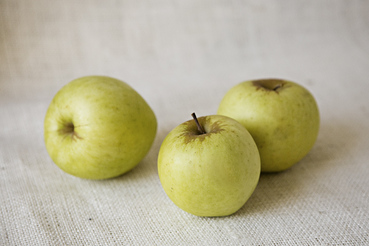
I often get questions from clients and friends about fruit and it’s sugar content. One of the first things we often think of when we’re trying to improve our nutrition is how to cut out sugar. Sugar, so delicious, but so bad for you. Linked to increased risk of obesity, cancer, and numerous other disorders, it seems like we should just stay as far away from sugar as we can, right? And fruit, well it’s really sweet and has a lot of sugar. So we should totally not eat fruit, right? Well, not quite.
Yes, fruit has sugar. Fructose and glucose, to be exact. And, yes, sugar in cookies, pies, ice cream, etc., is also fructose and glucose. And, yes, your body ultimately metabolizes these compounds the same way, regardless of source, i.e. converts fructose into glucose in the liver and then uses glucose for energy throughout the body, storing excess for later use. BUT, that’s where the similarities end. Fruit, in its whole, real food form, like a fresh apple, a bowl of fresh strawberries, or even frozen mango, is packed with antioxidants, vitamins, water, and fiber. Antioxidants are known cancer and inflammation fighters; vitamins are needed for all of the myriad of bodily processes and in constant need of re-supply; your body is about 60% water and always seeking replenishing; fiber helps reduce cholesterol levels, moderate blood glucose levels, slow digestion, and keep your digestive tract happy. Additionally, fruit has less sugar by volume than pure sugar. For example, a ½ cup of strawberries has about 3.5g of sugar, while a ½ cup of strawberry ice cream has 15g of sugar!
Because of its high fiber content, fruit digestion is much slower than straight sugar. This slower digestion results in slower absorption, allowing the sugar from the fruit to enter the blood stream in a more steady, moderate way, preventing the high insulin spike from eating just sugar. Additionally, fiber swells in the digestive tract, not only providing a sense of fullness, but also helping to keep the intestines toned so that they are in top shape to do their job.
In contrast, refined sugar (sugar that’s added to foods, that is NOT a natural part of the food, but an added ingredient), is rapidly absorbed by the body, resulting in a huge insulin spike as the body tries frantically to manage the sudden, overwhelming influx of sugar. If not used immediately, the body is forced to store this sugar, often as fat, to reduce the blood sugar levels back to normal, healthy levels. And, the lack of fiber and very quick absorption of refined sugar prevents the body from ever having a sense of fullness, meaning you can eat a TON of sugar, really loading up on the calories, and still feel “hungry”, resulting in even further over eating.
So, to recap: Fruit has natural sugar. Yes, the body will ultimately metabolize this sugar through the same pathways as it does refined sugar found in candy, soda, cakes, etc. BUT, fruit has a whole host of other benefits, making it a very healthy, important part of your diet, while refined sugar has…no benefits, and should really be avoided as much as possible. And for the best fruit benefits, opt for whole fruits, in their natural form, rather than dried, baked, or juiced.
Because of its high fiber content, fruit digestion is much slower than straight sugar. This slower digestion results in slower absorption, allowing the sugar from the fruit to enter the blood stream in a more steady, moderate way, preventing the high insulin spike from eating just sugar. Additionally, fiber swells in the digestive tract, not only providing a sense of fullness, but also helping to keep the intestines toned so that they are in top shape to do their job.
In contrast, refined sugar (sugar that’s added to foods, that is NOT a natural part of the food, but an added ingredient), is rapidly absorbed by the body, resulting in a huge insulin spike as the body tries frantically to manage the sudden, overwhelming influx of sugar. If not used immediately, the body is forced to store this sugar, often as fat, to reduce the blood sugar levels back to normal, healthy levels. And, the lack of fiber and very quick absorption of refined sugar prevents the body from ever having a sense of fullness, meaning you can eat a TON of sugar, really loading up on the calories, and still feel “hungry”, resulting in even further over eating.
So, to recap: Fruit has natural sugar. Yes, the body will ultimately metabolize this sugar through the same pathways as it does refined sugar found in candy, soda, cakes, etc. BUT, fruit has a whole host of other benefits, making it a very healthy, important part of your diet, while refined sugar has…no benefits, and should really be avoided as much as possible. And for the best fruit benefits, opt for whole fruits, in their natural form, rather than dried, baked, or juiced.